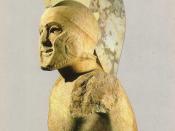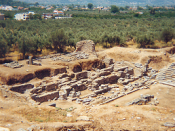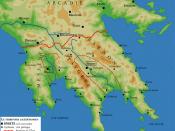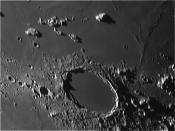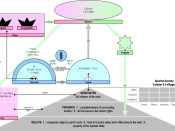ÃÂIt has been said that Sparta had two separate histories, its own and that of its image abroad...Considering how much was written about Sparta in antiquity, it is remarkable how confused, contradictory and incomplete the picture is. Partly this is because the mirage is constantly cutting across the reality, distorting it and often concealing it altogether; and partly because the Spartans themselves were so completely silent.ÃÂWith respect to our knowledge of the helots in ancient Sparta, how accurate do you believe this statement to be? Support your position by discussing the primary sources available on ancient Sparta.
It is accurate to say that many ancient writers recorded works associated with ancient Sparta. Very few of these works were recorded by Spartans or those who had any first hand experience of the city or contact with the people early in Spartan history when the helot class originated and when their role and treatment was being moulded.
Those that did, such as Xenophon and Tyrtaeus, were written from the perspective of the most powerful class in Spartan society, the military Spartiates. For these reasons it is entirely accurate to claim that our evidence of Spartan society, and specifically the helot class, is distorted, incomplete and confused. Furthermore, it is accurate to assume that given these reasons the reality could be contradicted by the mirage or myths established by these writers.
Thucydides who wrote his famous ÃÂThe Peloponnesian WarÃÂ late in the 5th century BC, wrote after the major events in Spartan history that led to the development of the helot class and when the attitudes towards the helots were being developed and their roles formulated. Thucydides work focused on the war and on foreign relations with society and the helot class not being central to his work. Any evidence produced by Thucydides must be read in light of the fact that he greatly admired the Spartan system of controlling and suppressing the helots.
Like Thucydides, Herodotus wrote in the 5th century BC when he compiled his famous works ÃÂThe HistoriesÃÂ. While his writings include information related to Sparta he too primarily deals with Spartan foreign policy and thus provides little to no evidence relevant to the helot class. Furthermore, any evidence he does provide on the helots is distorted by his strong bias against the constitution of Sparta and therefore against how the Spartiates controlled and treated the helots.
The two famous Athenian philosophers, Plato and Aristotle, while having something to say on the Spartan system and therefore the position of the helot class within this system, provided works that were not only biased, but also written to support the political philosophies they were proposing at this time. Plato greatly admired the Spartan system particularly the order and stability that ensure the helot class remained submissive in Spartan society. Therefore, like the other ancient writers, PlatoÃÂs portrayal of the helots is distorted by these views. While Aristotle was a pupil of Plato, this does not mean that he totally agreed with PlatoÃÂs admiration of the Spartan system. Aristotle was quite critical of the control of land being in the hands of the Spartiates and the problems created by maintaining this system through control of the helot class who were compelled to work these lands for their masters, the Spartiates.
Xenophon wrote his ÃÂConstitution of the LacedaemoniansÃÂ using evidence gathered from his contact with Spartan soldiers during the time he served in the Spartan as a mercenary. While this makes him a more reliable and accurate source than many of the other ancient writers, his writing is biased due to the status of the Spartans from who he gathered his evidence. His view of the helots would therefore have been distorted by the image presented by these soldiers who controlled the helots. XenophonÃÂs work reveals his strong admiration for the Spartan system and therefore his support for the treatment, roles and position of the helots in Spartan society.
PlutarchÃÂs ÃÂLife of LycurgusÃÂ is extolled as a major work on ancient Sparta. However, PlutarchÃÂs work also presents distortions due to the fact that he was writing much later, between AD 46 ÃÂ 120, than many of the other sources. His work therefore relies heavily on these earlier sources and therefore includes the bias and distortions evident in these sources. While Plutarch was thought to have visited Sparta this would have occurred long after the events that relate to the history of the helots and their position in Spartan society. Plutarch is also not considered to be an historian but more a biographer and a philosopher of ethics and therefore his work consists mainly of anecdotes that recount the life and work of Lycurgus.
Like Plutarch, Pausanias also wrote much later than the time period when the helots originated and operated as a slave class in ancient Spartan society. Pausanias wrote his ÃÂDescription of GreeceÃÂ around AD150 which included details related to the operation of the Spartan constitution and therefore including references to the helots and their position within the constitution. Given the space in time it can be assumed that Pausanias like Plutarch relied on the ancient sources who came before him in his writing and therefore reflected the same problems that existed with these sources.
Tyrtaeus, an ancient Spartan poet, could perhaps be considered as the only true Spartan source. His poems were written around 640BC around the time of the second Messenian War, a helot revolt against the Spartiates. The purpose of his poetry was to encourage the Spartiates in their battle and therefore was no doubt very biased against the helots and their cause.
BibliographyPomrey, S (etal) 1999. Ancient Greece a Political, Social and Cultural histroy, Oxford University Press, England,p. 131-132Bradley, P. 1998. Ancient Greece Using Evidence, Edward Arnold, Austrlia, p.53Hennessey. D. 1991. Studies in Ancient Greece, Thomas Nelson, Australia, p 58-59
